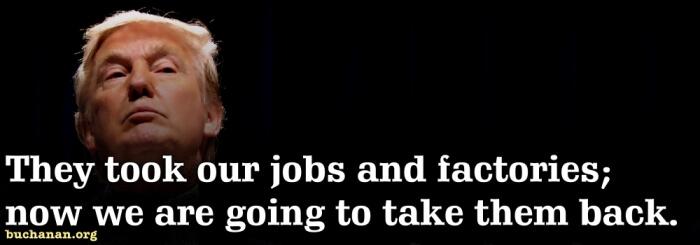
By deciding last week to instate a 25 percent tariff on steel imported into the U.S. and a 10 percent tariff on imported aluminum, U.S. President Donald Trump has once again demonstrated that he intends to stay true to the political line that carried him to the White House in November 2016: “America First.” It doesn’t matter that in the end, when you closely analyze the overproduction of steel globally, you can see that U.S. imports only represent 6 percent of imports coming from the EU and barely 1 percent of those coming from China. For Trump, that’s not the point. More than economic interests, political interests guided his decision and show his protectionist and populist view on trade.
Let’s talk first about international politics. Trump wants to denounce free trade agreements that have been signed and defended by the U.S. by his predecessors for years. For the Republican president, according to one of his recent tweets, these “very stupid” agreements are unfair and punish the U.S. economy. That’s the message he sent during the last Davos summit: “We support free trade but it needs to be fair and it needs to be reciprocal.” He asserted, “The United States will no longer turn a blind eye to unfair trade practices.”
Looking at domestic politics next, Trump is coming up to the midterm elections − to take place this year in November − in bad form. Without mentioning the Russian interference in the 2016 presidential election and the repeated exits by his associates from the White House, Trump knows that his economic policies, in spite of strong growth and job creation, won’t have achieved his goals to reduce the commercial deficit or to increase investment in business. This is where his idea to send a message to his electoral base came from. And what better way to do it than through steel, after having promised during his campaign to make the devastated American steel sector great again. A promise that, incidentally, allowed him to win in Pennsylvania votes crucial for his winning the election.
Faced with this short-sighted American vision and the delusional, populist idea that everything would work better if each country folded in on itself in the name of “every man for himself,” the rest of the world, and in particular the EU, needs to show its determination to uphold international rules and its faith in multilateralism.
This doesn’t mean that nothing needs to change. In Davos, fittingly enough, Emmanuel Macron summed it up perfectly by pleading for a new “global contract” concerned with fixing and regulating globalization’s socioeconomic excesses. A new contract directed at integrating those whom globalization has left out and against growing nationalism, of which Trump’s steel war is the umpteenth example.

Leave a Reply
You must be logged in to post a comment.